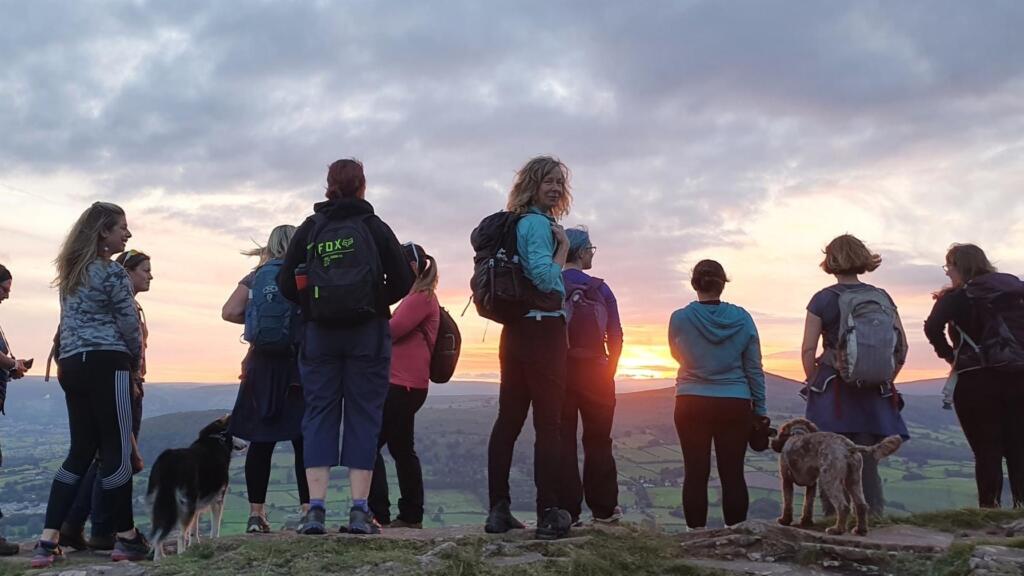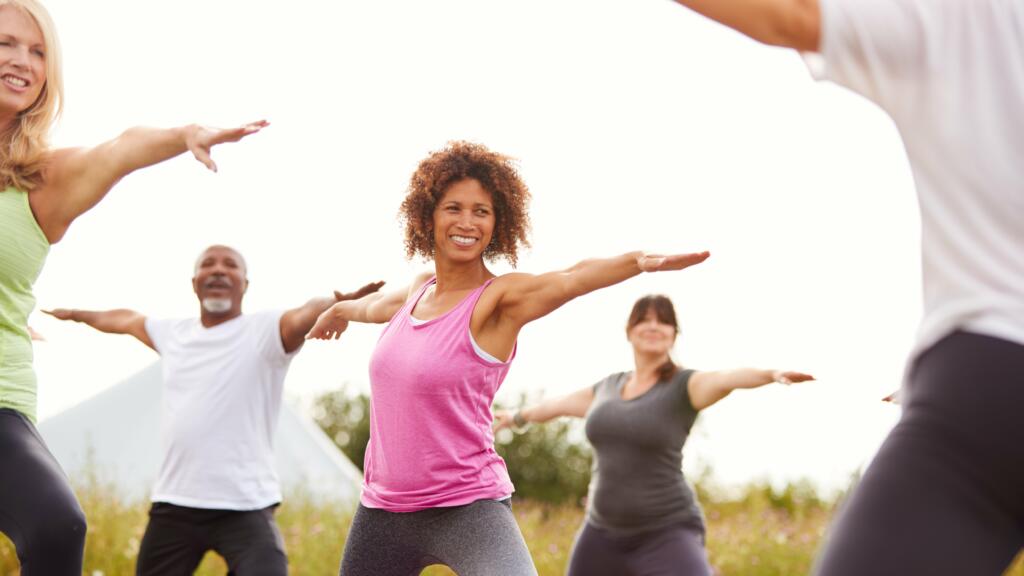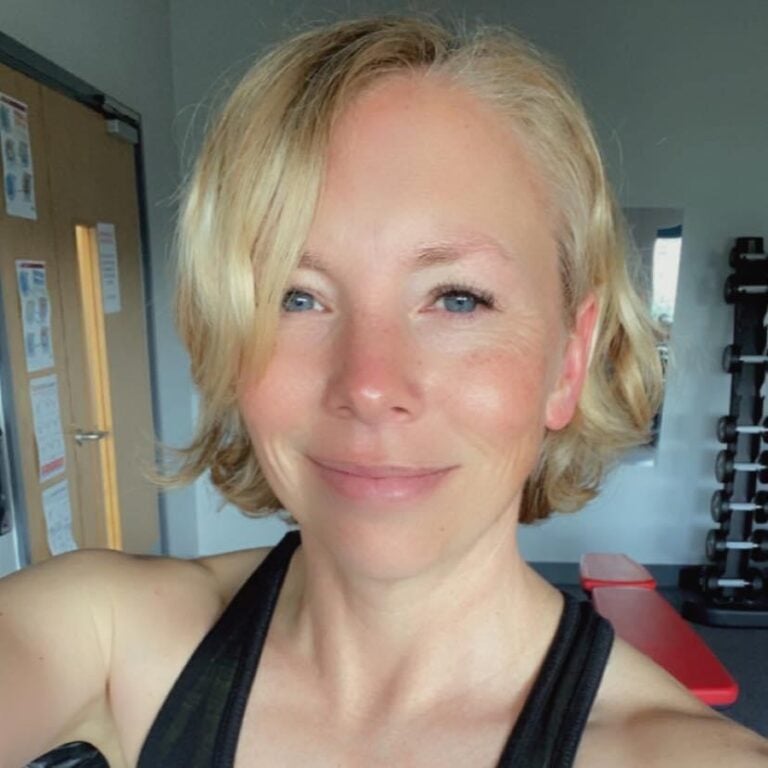
Find a walking group and transform your life
Phillipa Cherryson
Our list of social activities can help you start your healthier lifestyle
Could an active and more social lifestyle be the key to you staying healthy? Two recent studies suggest so, and we have the tips to help you get started.
We’re used to news stories about research on what might prolong or improve our lives, but the evidence is really stacking up that activity, both social and physical, has a profound effect.
One recent study looked at links between long-term health conditions and relationships. It asked nearly 8,000 Australian women, aged 45-50 when the study began, to rate their satisfaction every three years over a 20-year period in five areas: partner, family, friends, work and social activities.
Over the next 20 years, participants were tracked to see if they developed long-term conditions such as hypertension, heart disease, stroke, chronic obstructive pulmonary disease, asthma, osteoporosis, arthritis, cancer, depression and anxiety.
Could an active and more social lifestyle be the key to you staying healthy? Two recent studies suggest so, and we have the tips to help you get started.
We’re used to news stories about research on what might prolong or improve our lives, but the evidence is really stacking up that activity, both social and physical, has a profound effect.
One recent study looked at links between long-term health conditions and relationships. It asked nearly 8,000 Australian women, aged 45-50 when the study began, to rate their satisfaction every three years over a 20-year period in five areas: partner, family, friends, work and social activities.
Over the next 20 years, participants were tracked to see if they developed long-term conditions such as hypertension, heart disease, stroke, chronic obstructive pulmonary disease, asthma, osteoporosis, arthritis, cancer, depression and anxiety.
 Credit: Shutterstock / Monkey Business Images
Credit: Shutterstock / Monkey Business ImagesThe findings suggest that those who had the highest levels of relationship satisfaction also had the lowest accumulation of long-term conditions. Those who were least satisfied in their relationships had a greater risk of several long-term conditions.
Whilst the studies only looked at women, and in only two countries, they highlight how powerful good-quality social relationships can be. Not only do they benefit our mental wellbeing, but possibly our long-term physical health, too.
A second smaller study looked at physical activity and its links to brain function. This time around 1,500 British participants, all born in 1946, were monitored over four decades, completing surveys about their physical activities (among other things) at the ages of 36, 43, 53, 60-64, and 69. When they reached 69, they took tests for memory, processing speed and cognitive function.
What did it find out? That people who were physically active throughout adulthood were more likely to have better cognitive function and verbal memory than those who weren’t.
While those who stayed active all through their adult lives had better cognitive function aged 69, even those who started exercising later on saw benefits, proving it really is never too late to start.
So while it can be hard to break the habit of being in our own bubble, the benefits of starting a new activity are well worth it – and it could be fun.
 Credit: Shutterstock / Andrey_Popov
Credit: Shutterstock / Andrey_PopovExceptional spoke to Julia Buckley, fitness trainer and author, about the benefits of keeping active.
“I’m always trying to push the message that where our bodies go our mind follows, and where our minds go our body follows,” she says.
“What I mean by this is the action we take to get our bodies fit, strong, healthy and energetic (i.e. exercising) also gets us feeling mentally fresh, confident, clear-thinking and better able to deal with whatever life throws at us.”
Physical activity and energy levels go hand in hand. Whilst it might seem that exercise will tire you out, the opposite is true. Any form of activity, whether it’s a full-on gym session or a ten-minute walk, will boost energy levels and make you feel happier.
If you add in a social element to this, such as a group fitness class, or joining a club or society, you get the added benefit of interacting with others and meeting new people.
We’ve compiled a list of ideas to help you stay social, active and healthy.
 Credit: Shutterstock / Monkey Business Images
Credit: Shutterstock / Monkey Business ImagesIf you’re currently not that active, it can feel overwhelming to start. Choosing an activity to do with a friend is a great first step. You can motivate and inspire each other, plus it helps to know you’re not alone. You might find any excuse not to go for a run if it’s raining, but if you know your friend is waiting for you at the corner, then it’s trainers on and off you go.
It’s important to start with something that suits your current fitness level. If it’s been a while since you exercised, it’s not the best idea to start with, say, a daily HIIT class, which puts you through short periods of high intensity training with just a few short rest breaks. That could lead to burnout very quickly and even injury, making you less inclined to stick with it.
Finding something you enjoy will make you more likely to keep going. If you don’t like being in large groups, for example, look for activities you can do one-on-one, or with just a few people. Taking a bike ride with a friend or your partner could be just the thing.
 Credit: Shutterstock / Ground Picture
Credit: Shutterstock / Ground PictureGardening can be incredibly therapeutic. There’s something so satisfying about connecting with nature and the world around us, nurturing our garden to life and caring for it as it blossoms.
Being outside boosts our serotonin levels, too, making us feel happier, and it can be a great physical and social activity.
Our resident gardens expert, Rosanna Spence, offers advice for getting started: “Getting outside and engaging with nature is a wonderful way to feel more active and forge relationships with others. The physical actions involved with gardening, such as digging and mowing, can increase flexibility and help with weight loss by burning calories –, even if you’re just gardening to get fit gardening to get fit a few times a week.”
“If you have regular access to community garden, or take care of your own allotment, then there’s the added benefit of social interaction as you compare crops successes, commiserate over slugs feasting on your courgettes or simply share a moment admiring the blossom.”
“Sharing tasks, especially if you‘re volunteering in a group, can make sowing seeds and pruning shrubs a more meaningful and mindful experience.”
Allotments can offer a great opportunity to meet new people as well as become more sustainable in your food habits. You can search online for details on how to apply for an allotment where you live (there might be a waiting list).
Alternatively, the RHS offers advice on how to join a local gardening club, or you could take a look at your local council website for volunteering initiatives.
 Credit: Shutterstock / CREATISTA
Credit: Shutterstock / CREATISTAAs a fitness instructor, I’m a big advocate for group exercise classes, and there are loads of options out there. You could join a gym and take advantage of a range of classes included in the price. This gives you an opportunity to try a range of styles and see which format (and instructor) you like best.
If you know what you want to do already, for example Zumba, Pilates or yoga, look for classes held in community venues. These are often cheaper than a gym membership and may have a tighter-knit community. Either way, group exercise offers an excellent opportunity to become part of a community and make great friendships.
Group fitness can also improve mental health. If you’re feeling low, the endorphin boost from exercise and being around others can boost your mood. You don’t need to be overly conversational if you don’t want to – you’re all there for a common purpose and can focus on the task.
“It’s not easy to start exercising when you’re not feeling great mentally,” Buckley notes. “Something that helps a lot of people is exercising in a group of supportive people. It’s well known that socialising is good for our mental health too, making group exercise extra beneficial.”
“Let’s face it though, if we’re not feeling great mentally, being sociable often isn’t something we want or even feel able to do. But there’s a flipside – joining a group with the purpose of exercise means we can focus on that. In most exercise or sports groups, it’s not about trying to offer sparkling conversation or needing to be outgoing, it’s about getting together with other humans and just moving. There’s probably something quite primal about that.”
 Credit: Shutterstock / Jacob Lund
Credit: Shutterstock / Jacob Lund If the pandemic taught us anything, it’s that connecting with others online can be surprisingly helpful. And if it’s not always possible to get out and about given family and other commitments, or we just prefer being at home, that doesn’t mean our health should suffer.
“Being with others in person makes a huge difference for a lot of people, but for others, connecting with a group from home works best,” Buckley tells us.
“Online communities can be amazing places to get (and share) support and camaraderie. I’ve seen my own online workout community help hundreds of people transform both their bodies and minds, it’s amazing – many have made beautiful friendships along the way too.
“Whether or not you’re looking for new friends as you work on your fitness, just knowing that other people are out there on the same journey can be enough to give us a boost. Getting to know them, sharing tips and advice we learn along the way, can really make us feel connected.”
Neither does it have to be one or the other: socialising and being active can take place in a variety of settings.
“A lot of people nowadays choose a combination of going out to exercise with groups and at other times exercising at home, or even exercising outdoors alone and then sharing the experience with an online group,” says Buckley. “There’s no need to choose one or the other, it’s fine to want or need different types of interaction on different days.”
If you have a specific interest, such as cycling, look for forums online to share routes, tips, stats and more. A lot of Parkruns have local discussion groups on Facebook, and of course you can then meet up for the run.
 Credit: Shutterstock / PhotoRK
Credit: Shutterstock / PhotoRKWild swimming has had a huge surge in popularity in recent years. As pools shut during the pandemic, wild swimming offered a safer alternative outdoors with no need to be physically close to others.
Thankfully our love of a cold-water dip shows no sign of waning. Maybe it’s the fact that you’re out in the freezing cold in just your swimwear, or maybe it’s the endorphin rush, but being part of a wild swimming group offers a unique bonding experience.
While many groups are near the coast, there are plenty more based around rivers and lakes, so you should be able to find one not too far away. The Outdoor Swimming Society has a handy list of groups up and down the country.
Sian Richardson, founder of wild swimming group the Bluetits, says: “People wild swim for all sorts of reasons. They may be trying to find themselves or deal with depression. They might be looking for friendship, they’ve moved to the area or retired.”
“I‘m always asked what is it about the cold water and it isn‘t just the cold water, it is everything around it. But the cold water gives you that injection of adrenaline that when I was running, I would need three or four miles to get that real feeling of a yeah, everything‘s great in the world.
“With cold water, it just takes 90 seconds, you’ve got it and there it is. You are alive. The sea is more blue. The sky is more blue. Everybody looks more beautiful. You feel amazing.”
“We call it the Bluetit glow, but it isn‘t just the colour of our skin. It‘s the way our faces have lifted, our bodies are taller, we feel like superheroes.”
The great thing about outdoor swimming is that it doesn’t need to be a long, endurance-based exercise session. As Richardson says, it’s about that adrenaline rush, the time you share with others, and the mental and physical benefits of being in cold water – however briefly.

Written by Becky Fuller she/her
Published: Updated:
Becky Fuller is a fully qualified Personal Trainer, specialising in strength and conditioning for over 50s. Becky’s focus is helping people to become stronger both in body and mind, and to move well without pain. Becky also has many years’ experience working as a freelance journalist, writing for a wide variety of publications such as Screen Rant, Geek Feed, and Daily Actor. She also regularly reviews theatre productions for UKTW.